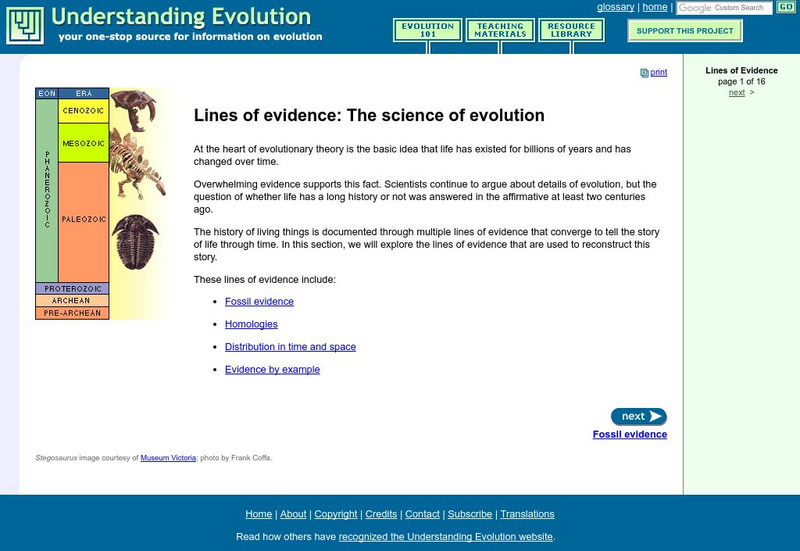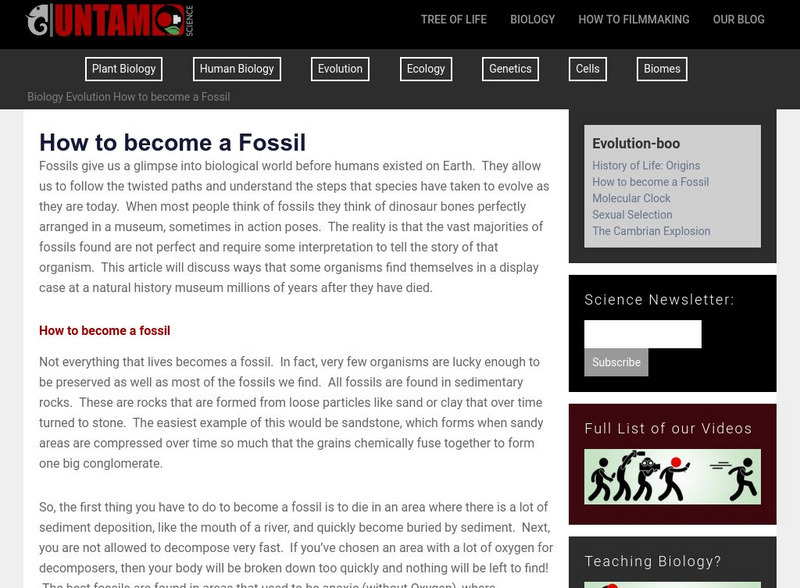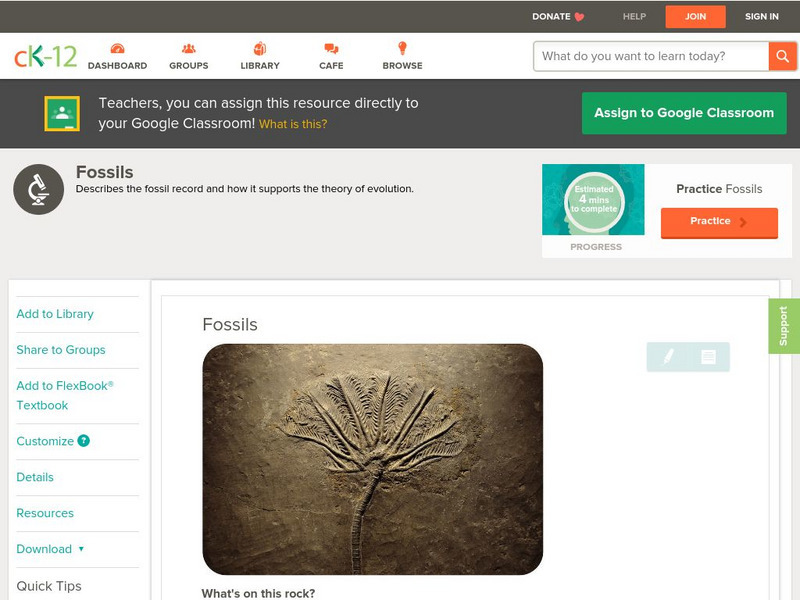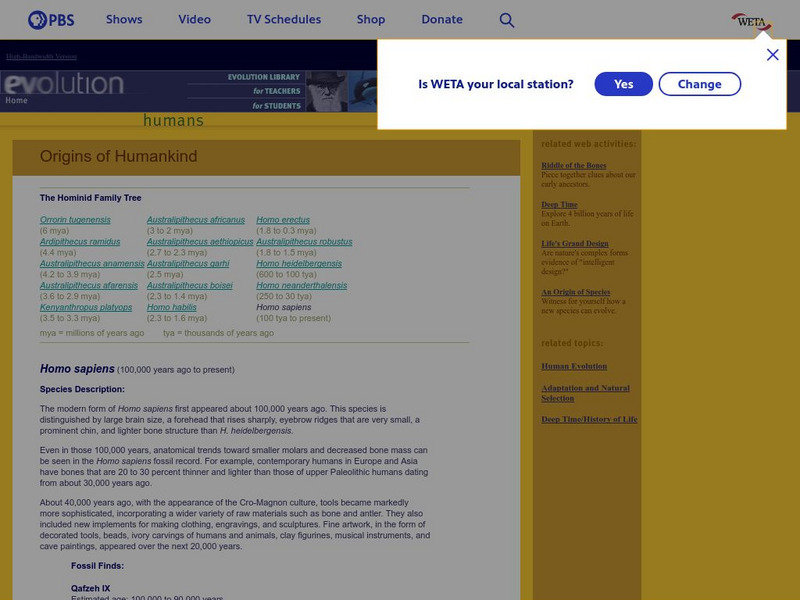Hi, what do you want to do?
University of California
Understanding Evolution: Lines of Evidence: The Science of Evolution
Evolution can be supported by the lines of evidence which are presented in this resource. Recognize these lines: fossil evidence, homologies, distribution in time and space, and evidence by example.
Untamed Science
Untamed Science: Biology: Evolution: How to Become a Fossil
Learn about what a fossil is, the different types that scientists use for study, and processes that form them. [2:57]
Estrella Mountain Community College
Online Biology Book: Paleobiology: Fossils and Time
Find out how fossil evidence has been the major link to learning about Earth's geologic history. See several illustrated interpretations of a geologic time scale in this online biology textbook.
CK-12 Foundation
Ck 12: Life Science: Fossils
[Free Registration/Login may be required to access all resource tools.] Fossils are the preserved remains of animals, plants, and other organisms from the distant past. By studying fossils, evidence for evolution is revealed....
Howard Hughes Medical Institute
Hhmi: Bio Interactive: Stickleback Evolution Virtual Lab
This virtual lab uses stickleback fish and fossil specimens to study evolutionary processes and teaches students skills of data collection and analysis.
PBS
Pbs: Evolution: Origins of Humankind: Homo Sapiens
Read a description of Homo sapiens as a species, learn about the variety of Homo sapiens fossils that have been found, and discover evidence of the culture of these early people.
Smithsonian Institution
National Museum of Natural History: Paleobiology: Geologic Time: The Oligocene
Travel through Earth's history to learn about the Oligocene time period, which is characterized by the appearance of most of the living families of mammals.
Smithsonian Institution
National Museum of Natural History: Homo Habilis
This resource provides graphics, as well as explanation, of the remains of Homo habilis.












